A few weeks ago, I visited a used bookstore and tackled their science fiction and fantasy sections with disappointing results.
After reviewing the A’s, B’s, and C’s of the science fiction section, I noticed there was only one Douglas Adams, no Isaac Asimov, and only one Arthur C. Clarke. I skimmed faster, and I recognized almost none of the other books. There was no Ursula K. Le Guin, no Phillip K. Dick—not even any Dune!
(Though, according to another essay I wrote about the true differences between science fiction and fantasy, Dune might actually be fantasy.)
What kind of a science fiction section was this? Had the store owner no self respect?
I hopped to the fantasy shelf and was equally shocked. Here’s what I found . . .
I recognize none of these books. I’ve never even heard of any of the authors. That may be a referendum on my own failures as an aspiring fantasy fiction aficionado. But you’d think I’d recognize something, right?
The cause, I think, is that used bookstores are more likely to have books one hasn’t heard of. Readers don’t want to give away their good books. And when a used bookstore gets a well known book, it sells quickly. So unless a used bookstore prepares, their selections will eventually end up looking like this.
And then we serial book buyers write off a terrible shopping experience as “browsing” and romanticize our wasted time . . .
Seriously! There’s no high score for inventorying 100,000 books no one wants!1
*ahem*
To the topic at hand . . .
While reading the titles and wondering what the books were about, I noticed something about the names: they weren’t very good.
Some examples:
Lord of the Shadows by Jennifer Fallon is a melodramatic derivative of The Lord of the Rings.
Medalon by Jennifer Fallon is a made up word that means nothing to me.
Traitor to the Blood by Barb and J. C. Hendee sounds like fantasy mad libs.
Deathstorm by Anne Knight. What is even happening here?
Clan Daughter by Morgan Howell means nothing to the reader and promises no payoff. She’s the daughter of a clan? I’m the son of a family, but I’m not writing a novel about it!
As I scanned, I wondered whether the quality of the writing matched the titles. Turns out Lord of the Shadows has a Good Reads rating of 4.26, and Medalon, Traitor to the Blood, and even Clan Daughter are all high 3’s—all over a thousand reviews each. I would be thrilled to be earning those numbers. (Deathstorm only has a 2.64.)
Would these novels have connected with more readers if they had better titles?
After all, there’s a poetry and style to fantasy novel naming:
The Lion, the Witch, and the Wardrobe has a beautiful cadence and alliteration.
The Return of the King promises so much.
The Last Unicorn sets up the premise succinctly and heartbreakingly.
A Storm of Swords. What a metaphor! It sounds like something interesting will happen in this book.
A Wrinkle in Time. Are you kidding me? That’s amazing!
The Once and Future King is a work of art in itself.
How are some titles so good and some so bad? I see trends in both camps, and for the middle portion of this essay, I want to try to codify these into guidelines—an amateur poetics of fantasy novel titles.
But, first, a humbling reminder of how ridiculous making up rules for fantasy fiction is . . .
In light of that, let’s say that (I think) you should (generally) . . .
Avoid made up names in titles
Made up names don’t provide a solid hook to peak reader interest. And I think they’re a little self-gratifying. Yes, you made a cool word. Congrats! What about me, the reader? What do I get out of reading that on a book jacket?
Medalon? It’s an uninteresting word that sounds like a portmanteau of “megalodon” and “medal.” In the novel, it’s the name of a fantasy country (and it does sound like one, doesn’t it?), but I think a made up country is a weak hook. Generally readers gravitate to (A) characters and (B) things that happen. Setting is important, but it’s usually only a hook if it’s a place people are already curious about like if someone read books about ancient Egypt because they love Egypt so much.
The exception here is really if the word itself is intriguing enough. Tolkien gets away with The Hobbit is a funny-sounding word and because the book immediately describes the hobbit in question. Eragon is an interesting sounding word that forecasts the high fantasy nature of the book effectively.
Avoid melodrama
Consider Death Storm. Oh, so there’s a storm? And there’s death? How . . . dramatic . . . It feels like the author threw out some intense words to see what’d happen and didn’t want to bother earning an honest reaction. I’ve read the summary, and there’s nothing about a death storm rolling around town killing people. Maybe one pops up later, but I think she’s using the title to abstractly describe her chaotic plot.
It’d be like if I named a thriller novel A Very Exciting and Fun Book You Should Read with Lots of Action and Fun Stuff. Or if I named a western Gun Shoot.
Knight of Ghost and Shadows from the shelf is also melodramatic, not just the title but the knight character sounds melodramatic—medieval emo maybe.
For contrast, consider Ursula K. Le Guin’s “The Ones Who Walk away from Omelas.” It’s intriguing. It’s dynamic. It gets away with using a made up word. It hints at action. And it’s so clear and direct that there’s no room for melodrama.
Raise a question
The core point of speculative fiction is to ask, “What if?” But on the shelf of ignored books, we see many titles that raise no questions:
Juxtaposition by Piers Anthony. Ummm . . . my only question is why you’d name a novel that if you wanted anyone to read it.
Shadows Past by Lorna Freeman. I’m snoring. I’m moving on.
Even Black Star Rising by Robert Gandt sounds all cool and mystical and fantasy-ish, but it doesn’t spark curiosity.
On the other hand, consider some of the greats:
The Horse and His Boy. Why does the boy belong to the horse?
American Gods. America doesn’t have any gods, or does it?
Howl’s Moving Castle. How can a castle move? Who’s this Howl guy who has a moving castle? What’s going on here?
The Last Unicorn. Why is he the last one? What happened to the others?
Great titles often spark curiosity and showcase a mystery. And nowhere is this easier to do than in Fantasy.
Avoid generic fantasy words
Especially the word “shadows,” please. On the shelf of lost books, I found Lord of Shadows, Shadows Past, Crown of Shadows, and Shadows Return.
Why are we obsessed with shadows? We get it. Shadows are dark and mysterious and give off cool fantasy vibes. Move on.
Also, way too many fantasy novel titles include “blood,” “wolf” (see: Wolf’s Blood by Jane Lindskold from the shelf), “lord of,” and “demon” of something or other.
When authors use generic fantasy words, their books fade into the shelf, and we readers tend to glaze over them. I think we’re all more inclined to get excited about books that promise something unique like Through the Looking Glass or The Phantom Tollbooth.
Avoid fantasy mad libs
On the fantasy shelf at the used bookstore, I found three versions of a pattern repeated again and again and again and again. Consider . . .
The Dragon of Despair, The Fall of the Kings, The Book of Ash, The Better Part of Darkness, and The Witches of Eleanan.
The slightly more detailed Lord of Snow and Shadows and Knight of Ghosts and Shadows.
The slightly more streamlined Crown of Shadows, Lord of the Shadows, Daughter of Independence, and Lord of the Isles.
It’s the Almighty Fantasy “Of.”
Apparently, a fantasy novel must be named “the <something> OF <something>.”
Fully 50% of the ignored fantasy titles in that store used this model, and I’m sure we have Tolkien’s The Lord of the Rings, The Fellowship of the Ring, and The Return of the King to thank for this model being in vogue, but if fantasy authors want to signal that their novel is something special and unique, a great place to start is by not sounding like everyone else.
Foreshadow a dynamic situation
The Once and Future King by T. H. White is an amazing example of this. So, there’s this guy. He was once the king. And he’s going to be the king again in the future! Even if I’m not describing the plot very well, see how the title predicts action and change?
Clan Daughter is no good here. She’s the daughter of a clan. She has been and is and will be. Are we writing a novel about a static familial relationship? Pass.
James and the Giant Peach? How did the peach get giant (we assume something happens to the peach because peaches aren’t supposed to be like that) and what is James going to do with it? Action! Suspense!
Avoid inbred fantasy vibes
Over the last sixty years, the fantasy genre has become a little . . . inbred (of course with many wonderful exceptions).2
When Tolkien released The Lord of the Rings to (eventual) massive success and acclaim, he shaped our understanding of fantasy for generations to come. And then Dungeons and Dragons, Skyrim, Robert Jordan and a host of other authors adopted many aspects of Tolkien’s world. And now it’s 2024, and when most readers think of high fantasy3, the places they imagine look like a cartoonish Middle-Earth with cheeky bards and magic swords and snooty elves and quests. Let’s call this place “Fantastylandᵀᴹ.”
It seems to me that there’s a lulling sameness to most stories set in Fantastylandᵀᴹ. Of course, authors do experiment and subvert the genre. There’s plenty of Romantasy, Cozy Fantasy, and Dark Fantasy to go around. But nearly all high fantasy is still set in or directly riffs on the same core unspoken rules of Fantastylandᵀᴹ.
And I think this plays out in the fantasy novel titles I found in the used bookstore.
To be fair, I’m being far from objective here—it’s really a vibe thing for me—but let’s see if I can convince you with some samples from the shelf:
Feast of Souls
The Book of Ash
In a Time of Treason
The Field of Swords
The Dragon of Despair
The Gods of War
Rage of a Demon King
Don’t these feel generic and vague but definitely fantasy-ish?
To me, the titles read like they were written by the fantasy marketing director at one of the Big Five. And when I read them on a shelf, my eyes glaze over, and they fade into the shelf like camouflage.
On the other hand, consider Jonathan Strange and Mr. Norrell . If you took my rules too seriously, you’d think it’s not a great title because it raises few questions, but Clarke took a creative risk by including NOTHING in this title that appeals to marketing directors or that forecasts to audiences that her book will have all the genre tropes they want. She could have easily named her book The Two Magicians of England or Chaos and Books of Magic or The Raven King Returns or something. But by not playing by genre rules, she actually stands out on the shelf (it helps that the book is huge).
Other books that pop off the shelf by avoiding generic sameness are A Wrinkle in Time, Neverwhere, The Color of Magic, and The Neverending Story.
I think what this suggestion of mine comes down to is “don’t try to show you’re part of the genre with your title.” When you try to show you’re part of a crowd, you’ll fade into that crowd.
Successful Titles that Ignore My Suggestions
Unfortunately for those of us who like simplicity and predictability, these rules are all fallible and often broken successfully. If you want to ignore me entirely, you are welcome to. Many successful authors would have:
C. S. Lewis’s The Chronicles of Narnia and Ursula K. Le Guin’s A Wizard of Earthsea break three or four of these rules each. (To be fair, they were both starting and defining the newborn fantasy genre before fantasy authors had to worry as much about being cliched.)
The Two Towers by J. R. R. Tolkien seems a very boring title. So there are two towers you say? Fascinating . . . And yet it works in the context of the series
The Eye of the World by Robert Jordan is fantasy mad libs, and he doesn’t have Lewis or Le Guin’s excuse of being early pioneers of the genre. But it’s got a magic to it, doesn’t it? It’s epic.
Redwall by Brian Jacques is an amazing novel but has a made up, location-based title that raises no questions. And yet it still drew me in.4
Why do these titles work when other titles don’t? I think it’s because (A) the books are so good that the strength of the title matters less, (B) the authors were confident in their name choice, and (C) none of these seem like they’re trying to please a marketing department.
So what?
I don’t think fantasy authors should create Buzzfeed-style, clickbait titles for their stories, and I don’t think titles that ignore my suggestions are all awful.
But these guidelines do describe trends that I’ve seen in hundreds of successful and unsuccessful fantasy novels.
So in fear of sounding like Ronald Chevalier from the above Gentlemen Broncos clip, I present these suggestions for you to noodle around with. Maybe they prompt a couple of new titles you wouldn’t have thought of otherwise.
My one sure-footed adjuration is to avoid writing a title to sell. Commodifying even your title sends the message of “sameness” when readers want something unusual—why else would they read fantasy? Apply the same creative hard work to your title as you did to your story.
Titles are an author’s chance to let readers know something about their story, to get them interested, and to set the tone for the story.
And there’s no genre with more potential for really amazing titles than fantasy.
Thanks for reading past the dragon!
I worry this post’ll come across snootier than usual or like I’m thinking too much about the business side of writing, but I wrote it because I thought the topic sounded interesting, and because reading the titles on that shelf made me frustrated that it’d be so hard to find out if I actually was curious about any of those stories.
But I suppose they do say, “Don’t judge a book by its cover” for a reason. It’s just that with two kids, two jobs, and a Substack to write, I have so little time for withholding judgment. Please make my judging easier, fantasy authors!
I think that’s enough caveats. Thank you for hearing me out.
Do you have a book with an awful title that turned out really good? Let me know the name and author, and I’ll add it to my ThriftBooks wishlist.
As a final note, if you’d like to check it out, recorded a narratorial reading of this essay. It’s worth the listen if you skimmed it to get to the end here.
One of my favorite bookshops does a great job of this. They have thresholds for how quality/popular a used book must be for them to accept it (a certain rating on Good Reads and a certain number of reviews typically), and then they order in new copies of popular books that readers keep buying. I know I’m guaranteed to always find something I like (and pretty quickly too).
I think publishing sales departments and the codification and commodification of the fantasy genre are to blame.
High Fantasy is fantasy set in a world completely unconnected from ours—Earth doesn’t exist in that universe (or any parallel universe). Low Fantasy is fantasy set either in our world or in a world one can get to from ours.
But hear me out: what about “Mouse Wars”? No? No takers? Yeah, that’s probably a good call.





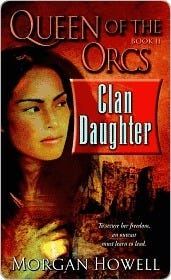
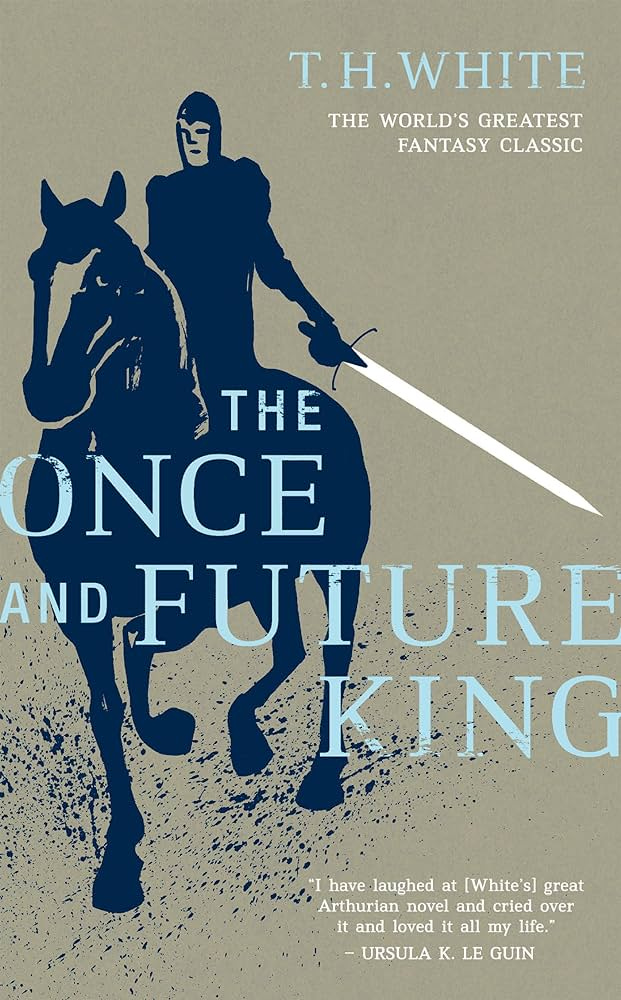
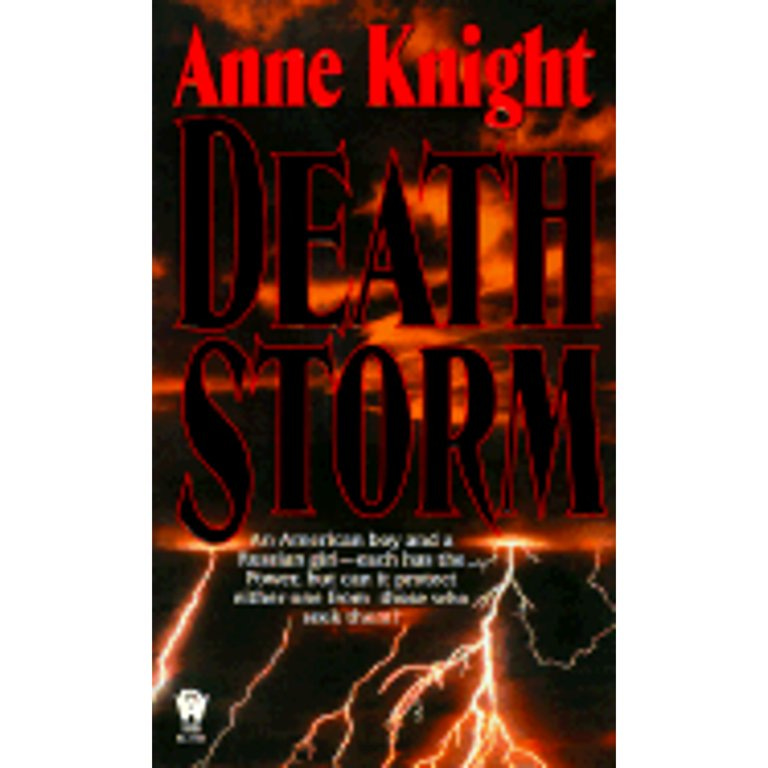
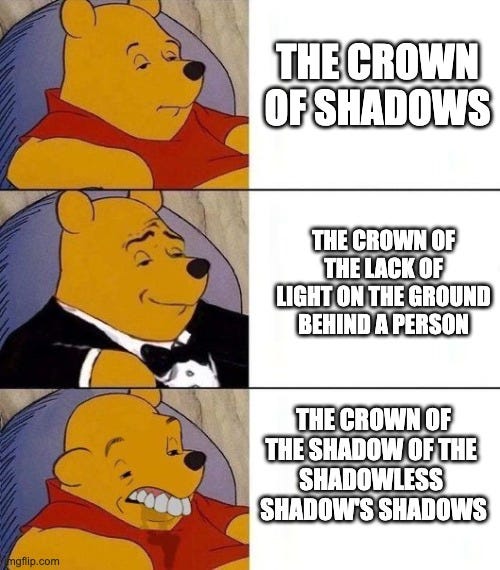


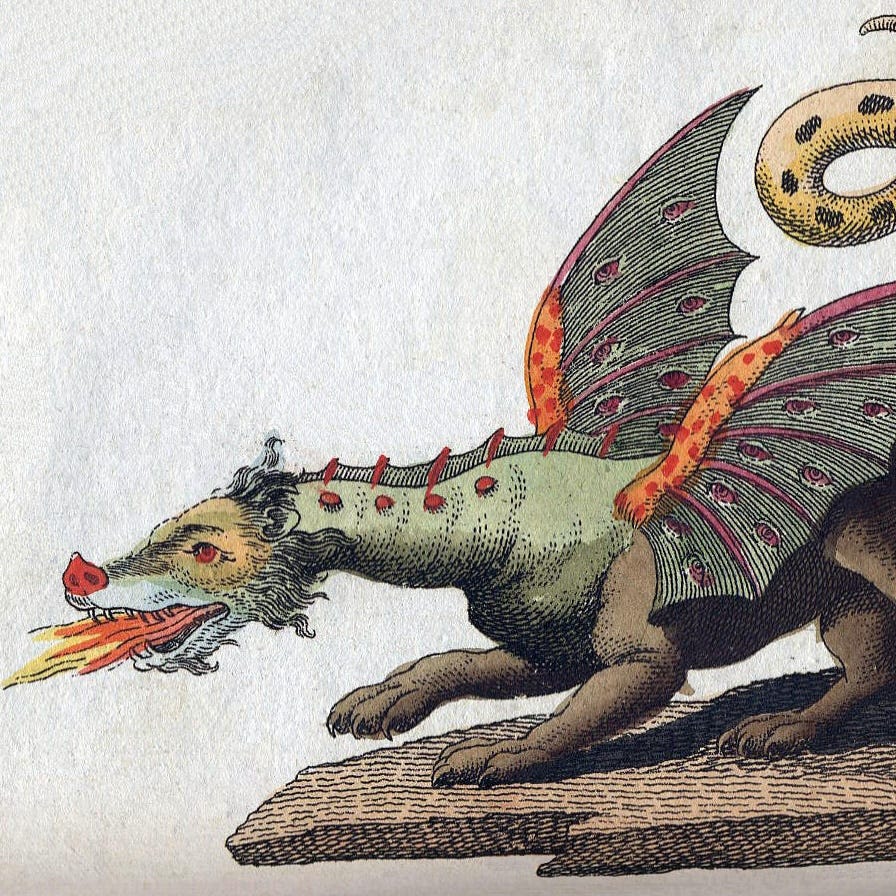
My friends and I love to riff on these trends. A current fixation (that's perhaps falling out of fashion) in YA fantasy seems to be "A ____ of _____ and _____": see "A Song of Ice and Fire", (which isn't YA but probably started it), "Court of Thorns and Roses", "The Ballad of Songbirds and Snakes", etc. They get increasingly blurry: "A Curse So Dark and Lonely", "Children of Blood and Bone", etc.
Over in the literary fiction world there's a similar but different trend denoting, of all things, smallness? "Small Things Like These", "A Little Life", "Big Little Lies", "Little Fires Everywhere", "Tiny Beautiful Things", etc. When you see those titles you know it's probably gonna be about a middle-aged woman in a cable knit sweater with perfect hair holding a glass of red wine on the balcony of her New England beach house.
This assumes, of course, that modern publishers want their authors to be memorable or for individual titles to stand out. McDonalds does not want its individual cooks to stand out and establish names for themselves, they want them to be infinitely replaceable teenagers. (Though they do have to pay them more than the average fantasy author makes.) Similarly, they don't want anything taking away from the brand name Big Mac, so, since books do have to have separate titles, the next best thing for publishers it to come up with a thousand different ways of saying "Big Mac."
Eric Hoel made a very valuable observation about why all the writers in the Atlantic or The New Yorker sound exactly the same, and why they sound worse when they publish on their own Substacks. The voices you hear in The Atlantic and The New Yorker are not the voices of writers. They are the voices of editors. https://www.theintrinsicperspective.com/p/why-are-famous-writers-suddenly-terrible
A great deal of what is wrong with literature today, and not just fantasy, is that it is not the voice of the author at all, but the voice of the editors, who are paid agents of conformity. https://gmbaker.substack.com/p/classic-vs-modern-fiction-part-4